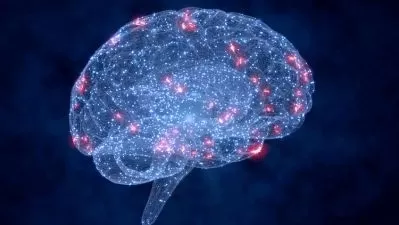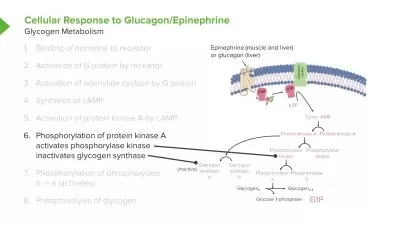The Fundamentals of Neuroscience: Structures and Functions
Maria Papapetrou
3:18:30
Description
Know Your Brain, Rewire Your Brain
What You'll Learn?
- Know how things work inside the brain
- Understand Neuroplasticity
- Learn what is good for your brain
- Understand how habits are formed and what is the way to deal with them
- Think about and use what you've learnt in every day life
Who is this for?
What You Need to Know?
More details
DescriptionThis course is devided into two parts.
The first part explores the brain from the inside: the shields that protect the brain, its connection to the Peripheral Nervous System, the Neurons and how they communicate with each other, the four Lobes, some important areas like the Amygdala and the Hippocampi. You will learn some basic stuff, but also details about how things work and hence we do what we do and are who we are. This part is mostly about the structures of the brain.
In the second part we will move from the structures to the functions and see their two way relationship. Here, you will learn about Neuroplasticity and how it can be achieved, the necessity of the right nutrients and physical exercise, change and cognitive flexibility, how habits are formed and how we can break them, about ways to rewire your brain. Also, there are lectures about the importance of learning and the components of learning, in order to be able to organize more efficiently the learning process.
Research is essential for a number of reasons. Without it there would be no findings and an in dept analysis of things. It facilitates learning, expands knowledge, helps you undestand things better and provides knowledge that has been tested and is applicable. Therefore, the majority of the lectures is based on research and there are many references.
Who this course is for:
- Anyone who is interested in Neuroscience and the brain
- Anyone who wants to know how things work
- Anyone who would like to use this knowledge and make changes
This course is devided into two parts.
The first part explores the brain from the inside: the shields that protect the brain, its connection to the Peripheral Nervous System, the Neurons and how they communicate with each other, the four Lobes, some important areas like the Amygdala and the Hippocampi. You will learn some basic stuff, but also details about how things work and hence we do what we do and are who we are. This part is mostly about the structures of the brain.
In the second part we will move from the structures to the functions and see their two way relationship. Here, you will learn about Neuroplasticity and how it can be achieved, the necessity of the right nutrients and physical exercise, change and cognitive flexibility, how habits are formed and how we can break them, about ways to rewire your brain. Also, there are lectures about the importance of learning and the components of learning, in order to be able to organize more efficiently the learning process.
Research is essential for a number of reasons. Without it there would be no findings and an in dept analysis of things. It facilitates learning, expands knowledge, helps you undestand things better and provides knowledge that has been tested and is applicable. Therefore, the majority of the lectures is based on research and there are many references.
Who this course is for:
- Anyone who is interested in Neuroscience and the brain
- Anyone who wants to know how things work
- Anyone who would like to use this knowledge and make changes
User Reviews
Rating
Maria Papapetrou
Instructor's Courses
Udemy
View courses Udemy- language english
- Training sessions 46
- duration 3:18:30
- Release Date 2022/11/27














